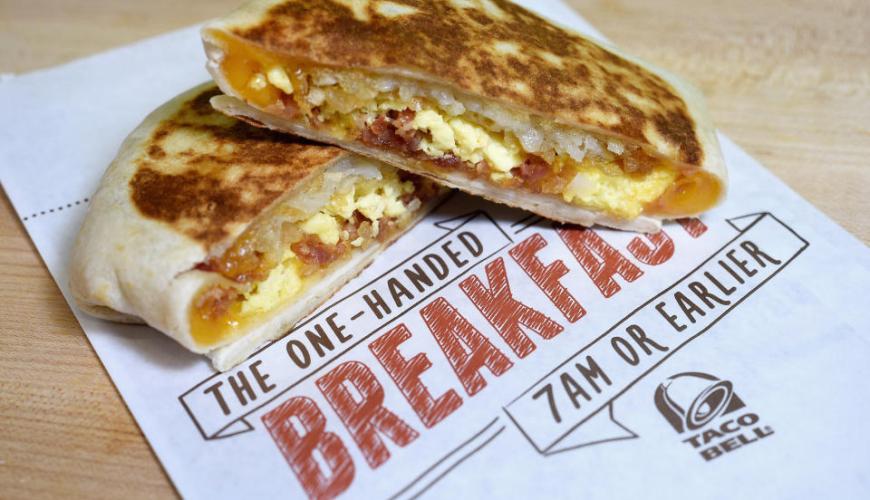Breakfast wars: McDonald's, Wendy's, and other fast food giants are vying for diners' morning dollars

Fast food giants, from McDonald's (MCD) and Wendy's (WEN) to Burger King (QSR) and Taco Bell (YUM), are duking it out for a share of the breakfast pie.
But not all comers will get a taste of sweet results. As big chains look for ways to counter declining foot traffic and grow beyond the crowded lunch and dinner space, breakfast is becoming a battleground.
"A lot of competition is now stepping up to win," Bernstein analyst Danilo Gargiulo told Yahoo Finance.
With the cost of eating out staying persistently high, pinched consumers may opt for breakfast as a treat over more expensive options, per Morningstar analyst Sean Dunlop.
That means a morning McMuffin sale may not cannibalize an evening Big Mac sale, but a diner might shell out for some fast food hot cakes instead of a sit-down brunch.
A successful breakfast strategy could attract visitors who weren't coming to the restaurant before and complement its core offerings, said Gargiulo.
Currently, McDonald's is the dominant player in the space. In 2023, the Golden Arches received 35.4% of all 7 a.m. to 10 a.m. visits to fast food, quick service restaurants, breakfast, coffee, bakeries, and dessert shops.
That's followed by Starbucks (15.9% market share), Dunkin' Donuts (14.0%), and Burger King (4.5%).
Now, Wendy's is determined to catch up. CEO Kirk Tanner said on a recent earnings call that breakfast is "one of the most compelling levers" to grow sales and margins, without the need for additional labor.
The chain is investing $55 million in advertising in the US and Canada to supercharge its morning sales and unveiled a Cinnabon pull-apart cup in February to mark four years in the breakfast arena.
As a large part of a restaurant's costs are fixed — like machinery or rent— revenue from breakfast items is "truly incremental to a brand," said Dunlop. In addition to lower staffing needs, breakfast foods usually use items like bread and eggs that are cheaper than beef patties.
Once a company's breakfast offering hits scale, it tends to be more lucrative than sales in other parts of the day. Breakfast diners are also more habitual, so chains that make themselves a part of consumers' morning routine can parlay that into higher participation in loyalty programs and digital sales.
But the competition is fierce. Taco Bell is testing breakfast tots and leaning into menu offerings like a Bell Breakfast Box. Burger King is luring customers with promotions, including a March special where eaters can get a free breakfast item with any purchase of $1 or more.
So who wins?
Gargiulo, who warned that making the prices of breakfast too low could cut into a chain's lunch sales, said "everybody has a slightly different competitive advantage over the others."
While McDonald's has a leg up on location, Wendy's has its fresh-never-frozen allure, and Taco Bell is focused on attracting Gen Z and millennials, per Gargiulo.
Wendy's is targeting a 50% bump in its breakfast business, says Dunlop, which would put it on par with Burger King, which gets 15% of its total sales from breakfast. McDonald's gets about 30% of total sales from its morning business.
But execution is critical in this race. "Depending on your breakfast program, the labor, inventory, insurance, and utilities costs may rise because you are operating for more hours and are carrying and storing more . If you don’t have sufficient demand for your breakfast, your margins can deteriorate," said Gargiulo.
Beyond fast food, other longtime players like IHOP are also fighting to hang on to their corner of the market.
IHOP (DIN) reported a 1.6% jump in US same-store sales last quarter, with 20.4% of total sales coming from digital and takeout orders.
John Peyton, CEO of its parent company Dine Brands Global, told Yahoo Finance that the secret to IHOP's success is its fresh ingredients.
"We've been winning for years because we're made from scratch," he said.
Getting into this high-stakes game will become increasingly difficult as the market gets more saturated. Diners aren't likely to eat two breakfasts, so restaurants can only win share by taking sales from each other.
"Absent a unique, structural growth tailwind, breakfast becomes nearly a zero-sum game," said Dunlop. "It's an attractive space, you can see why companies are targeting it, and barriers to success are much higher than barriers to entry," Dunlop said.
—
Brooke DiPalma is a senior reporter for Yahoo Finance. Follow her on Twitter at @BrookeDiPalma or email her at [email protected].
